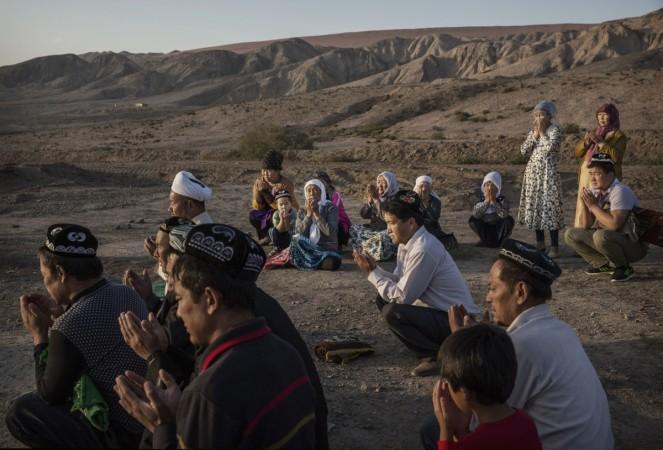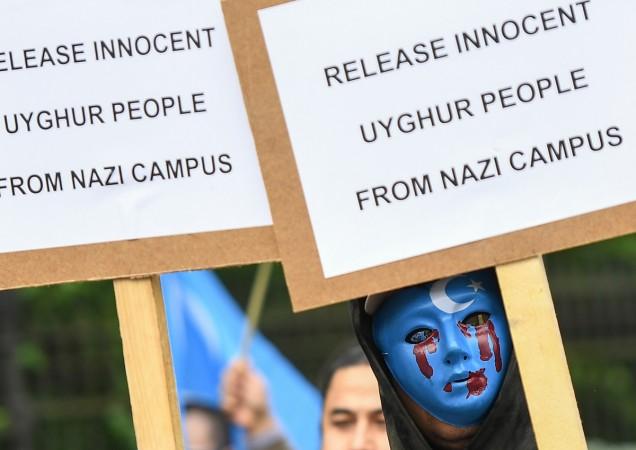
Seventeen Australians have reportedly been detained in China, as the nation continues its crackdown on ethnic minority Muslims. The Australians, it is believed, are being kept under house arrest, in prison, or are being held in the country's infamous detention camps, which Beijing claims are "re-education" centres in Xinjiang.
The detention came to light after family members of these 17 people — 15 permanent Australian residents and two on spouse visas — spoke to Nurgul Sawut, an advocate for Uighurs in Australia, reported the Guardian. It is being said that the individuals had travelled to China to meet their relatives, but haven't returned yet.
While their exact whereabout is yet unknown, Sawut has said that one of the group could be held in the prison, four are under house arrest, and the other 12 are in detention centres. She has now urged the Australian government to bring back the detainees and also help Uighur Muslims living in Australia.
"Our community members feel let down," she told The Guardian. Sawut has also discussed the issue with Department of Foreign Affairs and Trade (DFAT), but has revealed that little has been done to help those detained in China. She said that the only answer she had received until now was "we are talking to our Chinese counterparts."
What does that mean exactly?" she asked. "As an Australian embassy you need to do more to locate these people, to tell us if they're alive or dead. The language [the department] is using is very dire. The Australian government is basically saying we can't do anything right now."
Among those missing is Dilmurat Tursun, a 52-year-old permanent Australian resident, who travelled to China with his wife in 2017. Their passports were confiscated the minute they entered the country and their whereabouts aren't known now. It is believed that Tursun is being held in a detention centre, whereas his wife could be under house arrest.
I feel desperate and a sense of hopelessness," the Guardian quoted Abdurahaman's sister Zulfiyah Kurash as saying. "The only crime we can think of [that led to his imprisonment] is that he came to Australia and has relatives here."

Meanwhile, many Uighur Muslims in Australia have said that the issue and China's crackdown is often not taken seriously by politicians. "I felt they were not very serious about this conversation, they said they were very busy because they were in the middle of this other thing," Jurad Addukerin, 53, from Sydney told the daily.
"I hope that since 3 million people are being detained illegally and may be facing genocide ... that politicians should do more, should raise their voice about this issue, instead of not doing anything or saying anything."
There are several other Australian residents who have now also alleged that they aren't free and safe, even though they do not live in China. Some said that they often received threat calls from Chinese authorities, who also demand to see their documents such as passport and birth certificates.

After the uproar, the Chinese embassy in Canberra released a statement speaking of the Xinjiang province and its stability, but did not mention anything about the Australians and their detention.
"It is a wish shared by people of all ethnic groups for Xinjiang to maintain enduring social stability, since it serves their fundamental interests," the statement read. "The series of measures implemented in Xinjiang are meant to improve stability, development, solidarity and people's livelihood, crack down on and prevent ethnic separatist activities and violent and terrorist crimes, safeguard national security, and protect people's life and property."
China and its questionable 'concentration camps'
In December 2018, the United States said that China is estimated to be holding 800,000 to 2 million people in internment camps, a serious violation of human rights. Scott Busby, Deputy Assistant Secretary of State at the Bureau of the Human Right Democracy and Labor, spoke of this detention at a Congressional hearing and said that China even supports all those regimes who take similar steps when it comes to religious minorities.
He also explained that the detainees have not been charged for any kind of crimes — some don't even know why they have been detained — and their families have no clue of their whereabouts. The detainees include renowned Uighur intellectuals and retired professionals, who have no crime record and "the apparent goal is to force detainees to renounce Islam and embrace the Chinese Communist Party," Busby added.
However, Beijing claims that these are not concentration camps and are, in fact, "legal" and "humane job-training centres." Shohrat Zakir, the chairman of Xinjiang's government and an ethnic Uighur himself, said that these camps are for the benefit of the minority group and here they are trained on several skills, which may help them in the future.
Zakir told Xinhua that these centres had courses in the Chinese language for the Uighurs and other Muslims and also inspired them to be law-abiding citizens. He also said that people living in these centres learnt several skills such as hairdressing, cosmetology, basics of e-commerce and making clothes.
Zakir also claimed that people living in these centres were not detainees, but "students" who enjoyed facilities such as air-conditioned dormitories equipped with TV and radio, good and free meals, and access to computers and even movie screenings.
















